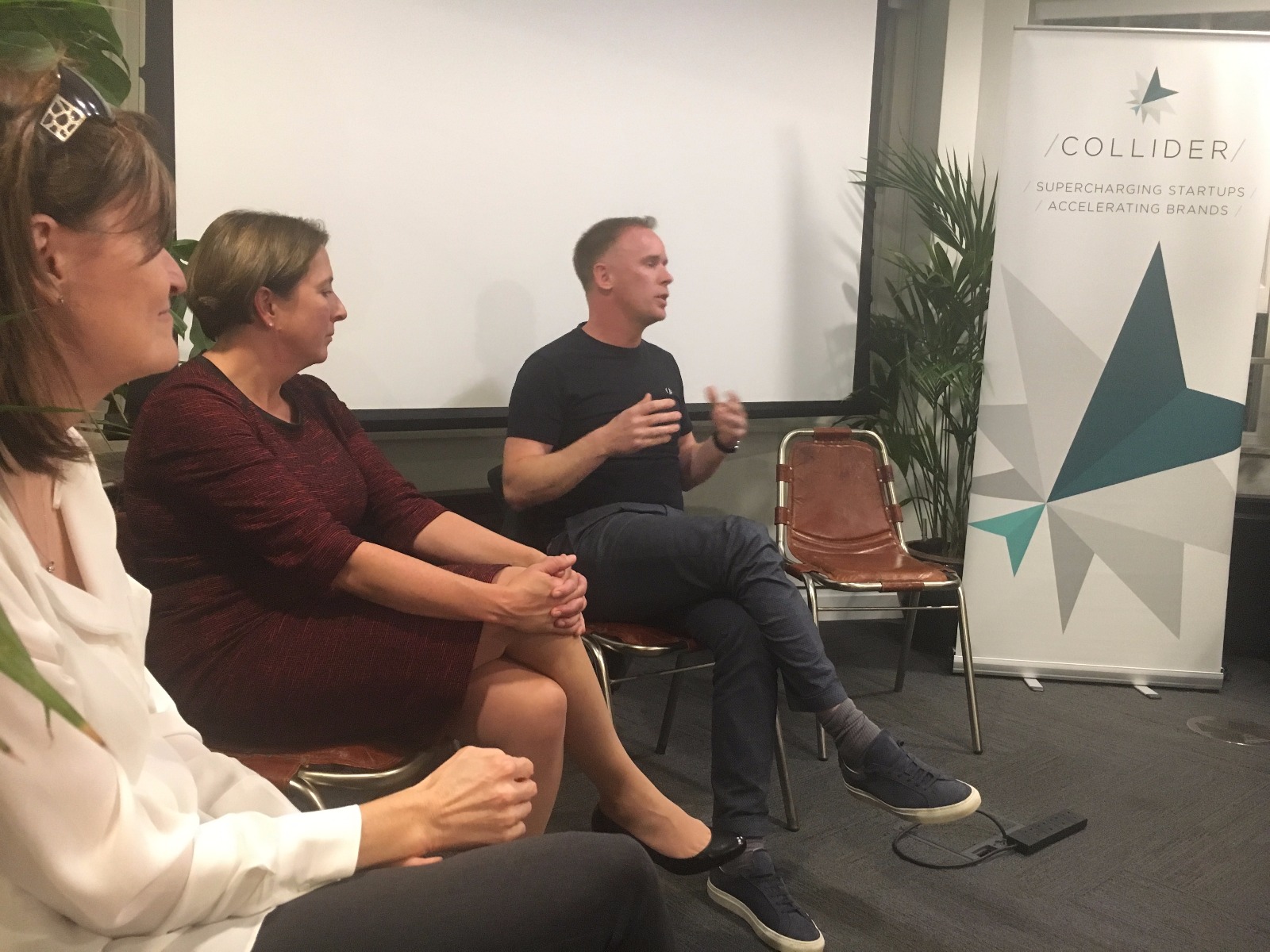
** This is a guest post from Andrew Ko, Co-Founder of Preceptiv **
Pivoting. The very definition means to turn on or around a central point, and this is what we did as a business. Our central point was the idea that useful insights for companies could be extracted from people’s music listening behaviours. This main idea has never changed since the beginning of our journey. However, the way we went about it before our pivot is completely different to how we are going about it now. Let me explain...
The company started out with the BIG IDEA of revolutionizing the way advertising was experienced and consumed. This concept got us into the Collider programme in London and jump started our road to the 'Billion Pound' idea. We created our own free streaming music app (no ads or subscription fee) with the hopes of gaining traction rapidly and attracting advertisers onto our platform.
Describing our music player in a nutshell, it displayed other people’s “moments” (hence our first company name: Moment.Us) with the song you were currently listening to so that you can experience what they experienced when they were listening to that same song. This created a more social and connected music listening experience and was a fun way to discover new music socially, an idea that I still hope gets implemented in the future by one of the larger players (ie. Spotify, Google, etc). The app was also beautiful, which was usually the first thing a new user would tell us. It was iOS 7 flat design before iOS 7 was released by Apple. So we thought we had everything tied down: the concept, the platform and the music licenses. Now all we needed was to convince brands to start putting their ads in there and we’d be in business because, I mean, how hard could it possibly be to attract a million users to our platform while giving away free full-length songs?
But what was that saying again? “The best laid plans of mice and men often go awry”. Yeah, that’s what happened to us. It wasn’t for lack of trying though, as our team did its very best to make it a success. But when we approached brands or advertisers, we ran into a few problems. The three most common were:
- They wouldn’t get on board without the user numbers
- They wanted to see proof that it worked before they committed
- They wouldn’t pay for the music royalties
We essentially ran into the 'chicken-and-egg' scenario in which we couldn’t get advertisers on board if we didn’t have enormous amounts of traction, but we wouldn’t be able to pay for the amount of music we were giving away unless we had revenue coming from the advertisers.
We also learned that giving away free music didn’t help sell the app (trying to buy word-of-mouth advertising) and that we actually needed money for marketing.
The numbers our app generated told a two-sided story:
In terms of user numbers to appease brands and get them on board, it was quite small. We managed to attract around 3000 users from the UK on word-of-mouth marketing as our app was limited to UK iOS users only (due to music license and resource restrictions).
However, in terms of engagement numbers, it was through the roof (higher than Facebook sponsored posts) and people found this way of music discovery extremely enjoyable.
Based on the feedback we received, we knew that our concept of using music to connect people was solid but the way we delivered it was just too expensive for anyone to buy into. So now what?
We had to pivot fast as we were running out of time and money. So we took our special sauce (our knowledge in connecting music with people’s experiences), threw out the delivery mechanism (the streaming music app) and started over again.
Music + Personality
We knew that our strength was linking music to people’s behaviours, experiences and identities so we decided to start there.
One of the key elements that people liked about our app was using music to determine someone’s state of mind. But what if we could also use music to determine not just someone’s state of mind at a particular time, but also their personality overall. This was actually a part of my PhD research; how music can be used to figure out people’s identities or personalities. The reason being that there really is nothing more personal than the music we listen to.
Armed with this new idea (and a new name: Preceptiv), we set off to verify that we could build such an engine. Drawing on previous academic research in this field, our mission was to turn raw quantitative music listening data into rich, insightful qualitative data that can be used to profile people’s personalities.
Why personalities you ask? Because we looked at the current state of the customer analytics market and they only profile users in two-dimensions - demographics and behaviours. However, the key to our technology is that it enables companies to profile their customers in three-dimensions by adding the key missing variable: psychometrics. This additional signal informs companies the motivations behind their customers’ actions and enables them to take the appropriate action to increase engagement, conversion and loyalty.
I’ll give you a very simple example: If Expedia knew that Joe (who’s 35 and lives in San Francisco) recently took a trip to Vietnam and they wanted to recommend him other places to visit, they’d probably suggest other trips to Southeast Asia just based on the fact that he went to Vietnam but not knowing what he did while he was there. However, if Expedia also knew that Joe is the adventurous type and likes thrills (because of his personality type), they could also send him more relevant and meaningful recommendations such as a safari trip to Africa or a volcano hiking excursion in Hawaii (which is closer to home for him). It’s been scientifically proven that a key aspect of what drives us through life and motivates our actions is through our personality. Being able to tap into this insight is incredibly powerful, and to do it on mobile devices (instead of solely on the web) is a dream for most companies.
This is actually what our secret sauce is all about and why we’re extremely excited about our pivot. We’ve cracked how to gather all of this data on mobile devices in seconds, with the same accuracy as a 50-question personality test, and without the user having to provide any input manually. It only takes minutes to harness the power of our technology, as its just a simple SDK being dropped into a mobile app. However, we realize that music is subjective so we need to continue collecting data, testing and refining our model in order to provide as accurate a view about people’s personalities as possible.
And that’s what we’re doing right now. Once we prove this works, there are a whole range of applications and companies that could benefit from the results of our experiment (we’re currently targeting the retail, financial and travel verticals). We’ve had great responses so far, trialling the technology with a few companies and getting useful feedback to refine our model. But we’re not done yet. All of this work is required for our journey towards the holy grail of startups: product / market fit. It’s taken us quite a while to get to this point, with a lot of twists and turns, but it’s definitely been worth it.





